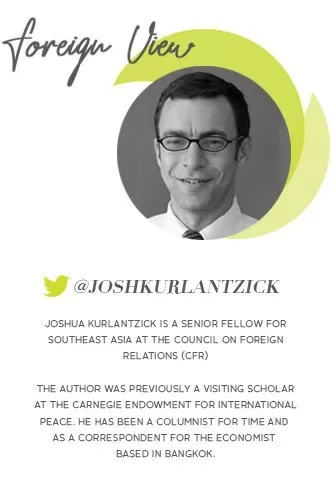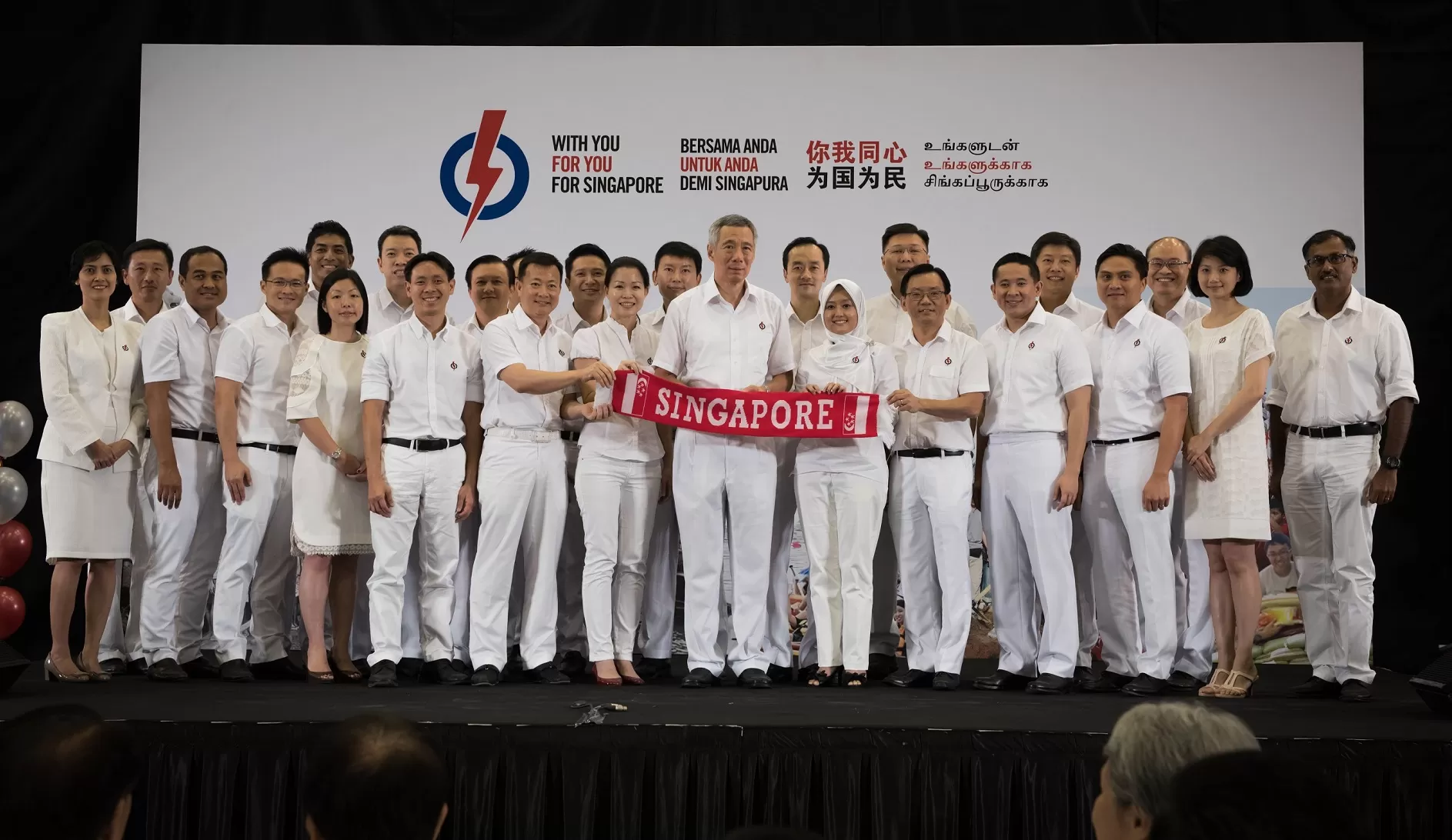
In his address, Lee noted the difficulty of determining how long it would take to wait out the pandemic, stating there was no guarantee that Singapore could hold a coronavirus-free election by April 2021, when the current government’s mandate officially expires. Lee may have also calculated that it would be more advantageous to call the election now, before the full weight of COVID-19’s economic impact has hit Singapore, and potentially damaged the ruling party’s image.
The PAP has dominated Singapore’s politics since the city-state became an independent republic in 1965; it currently holds 83 of the 89 contested seats in Parliament. This month’s campaign, however, could be its most challenging one since at least the 2011 election, when the PAP’s share of the popular vote fell to 60 percent, its lowest mark ever. “I think this is going to be a very tough election,” Foreign Minister Vivian Balakrishnan told CNBC this week.
Lee is probably correct that, at least technically, Singapore has the requisite public health expertise to pull off a vote during the pandemic. It is an extremely wealthy country, and its small geographic size will allow it to create safe polling places and establish mechanisms for those in quarantine to participate, much like South Korea did for its parliamentary elections in April. While mail-in voting will not be allowed, the government has announced there will be temperature checks and enforced social distancing at polling stations. It will assign each voter a recommended two-hour slot in which to vote, to prevent overcrowding.
But will the pandemic also make it harder for the opposition, which always struggles in Singapore, to win a significant number of seats in Parliament or a sizable share of the popular vote? Some opposition figures believe that COVID-19 offers an opportunity to dent the PAP’s standing. After initially handling the pandemic effectively with an impressive public health campaign that included the rapid rollout of testing and contract tracing, as well as travel restrictions, Singapore experienced a massive outbreak in April in its overcrowded dormitories for foreign workers, many of whom come from South Asia. The country hosts more than 1.4 million foreign workers, roughly a quarter of the total population, yet many of them, especially the hundreds of thousands who work in low- or semi-skilled industries like construction, often exist on the margins of Singaporean society. Their dormitories can house up to 20 people per room, making social distancing essentially impossible. While the government is now working to reduce crowding in the dormitories, the outbreak exposed a serious blind spot in Singapore’s COVID-19 response, undermining the narrative that the PAP had handled the virus well.
In addition, Singapore’s tech-savvy population is becoming more willing to push back against often heavy-handed government policies and criticize politicians and elected officials. Many Singaporeans are increasingly turning to social media for information, blunting the impact of mainstream news outlets, which tend to offer coverage that is highly favorable to the PAP. For example, one PAP candidate for a seat in Parliament, Ivan Lim, was forced to withdraw his bid for office after an outcry on social media over allegations of poor behavior during his time in military service, among other issues. “Ivan Lim’s pressured withdrawal shows the power of ordinary Singaporeans on social media,” Bridget Welsh, an honorary research associate with the University of Nottingham Asia Research Institute in Malaysia, commented on Twitter. “The days of unquestioned acquiescence to decisions are over,” she added, referring to decisions made by the government and the PAP.
Opposition parties also recently recruited several prominent figures to join their ranks, which might help them galvanize support. Lee Hsien Yang, the prime minister’s estranged younger brother, has formally joined the Progress Singapore Party, founded last year by a former PAP presidential candidate, Tan Cheng Bock. However, Lee Hsien Yang will not run for a seat in Parliament. The Singapore Democratic Party, another opposition party, has gotten Paul Tambyah, a prominent infectious disease specialist and leading expert on the coronavirus, to run in one constituency.
Some opposition figures in Singapore believe that COVID-19 offers an opportunity to dent the PAP’s standing. Share on XThe younger Lee is a prominent critic of the PAP, taking it to task for its response to COVID-19, among other issues. His family lineage gives his attacks more weight than many other Singaporean politicians. “The PAP has lost its way,” Lee said last month in a video posted to the Progress Singapore Party’s Facebook page, arguing that his brother’s government was “distinctly different” from that of their father, Lee Kuan Yew, who ruled Singapore from independence until 1990 and is still widely beloved in the country. The Progress Singapore Party claims that it already has seen increases in public support and donations due to Lee Hsien Yang’s decision to formally join it.
Meanwhile, the Workers’ Party, the only opposition grouping with elected MPs in Parliament, plans to campaign primarily on socioeconomic issues. Many Singaporeans have 99-year leases on government-constructed apartments, some of which are deteriorating in value, hurting their owners’ nest eggs. That, along with other issues like persistent inequality and the high cost of living, all point to a long-term need to make Singapore’s economic model more inclusive.
All of this means the PAP might receive a lower share of the popular vote than it did in the last election in 2015, when it got nearly 70 percent. That would be a dent in the PAP’s image and perhaps a sign that younger Singaporeans will eventually push for greater political change.
But ultimately, there is little likelihood that the PAP’s long winning streak will be broken this month. The party is stocked with political talent, and always oversees an effective campaign. Despite some public anger over how the government has handled COVID-19, the PAP has actively addressed the massive economic damage the pandemic will cause to Singapore’s open, trade-dependent economy, passing huge economic relief measures equal to some 20 percent of GDP. Meanwhile, the numerous opposition parties have not united behind a single candidate in some constituencies, and could split the opposition vote as a result. That would make things even easier for the PAP.
Singapore’s electoral system also imposes a high barrier to entry for opposition parties. Most parliamentarians are elected from multimember districts, known as group representation constituencies, in which voters choose one slate of candidates from a party to represent their district. This puts opposition parties, especially new ones, at a disadvantage, as they often have more trouble fielding a large slate of candidates. Moreover, the lines demarcating those districts are drawn by a government-controlled agency. Last year, the government also implemented a “fake news” law that, while potentially useful to limit disinformation and foreign influence efforts, could also have a chilling effect on public debate in the run-up to the vote.
Because of COVID-19, the government has also imposed curbs on campaigning in what is already a very short election cycle, including banning rallies. This may be a prudent public health measure, but it will hurt opposition parties that depend on mass gatherings to bolster their name recognition—a problem the PAP certainly does not have.
Given these limitations, even if the opposition makes a major dent in the PAP’s share of the popular vote, it will still struggle to win even one of the multimember constituencies that would give it a real voice in Parliament. And local polls still show high levels of satisfaction for the PAP government, despite public concerns about inequality and the high cost of living. Opposition parties may feel emboldened, but they remain a long way from toppling the PAP.
This article was originally published by World Politics Review and can be accessed at worldpoliticsreview.com

